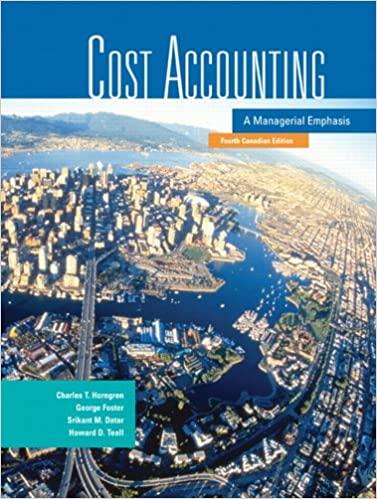Question
You are a senior auditor for one of the Big-4 accounting firms. You were assigned to a manufacturing client called Fountain Inc. Fountain makes all
You are a senior auditor for one of the Big-4 accounting firms. You were assigned to a manufacturing client called Fountain Inc. Fountain makes all kinds of electronic office equipment and sells to various distributors in California. It is a medium-sized public firm with stocks traded on NASDAQ. You and Tony, a junior accountant under your supervision, flew over to its warehouse to observe the inventory counting on January 1, 2023 and stayed there until Jan 21 to finish the fiscal year 2022 audit (Fountain has fiscal year ended at December 31). FYI, all sales contracts at Fountain use the standard term, FOB shipping point.
On the morning of January 1, 2023, you and Tony were present to observe the inventory counting performed by a team of volunteers consisting mostly of Fountain Inc. employees from the accounting or administrative departments. The employees used count sheets with serial numbers to count the goods. The last count sheet you saw had a serial number of 0189, and all the count sheets were collected after the count.
Shortly after the count was completed, Henry, the warehouse manager, rushed to your office with four additional count sheets, which added approximately $3.5 million or 6.5% to the stated inventory. You asked Harris Morgan, the assistant controller of Fountain Inc., for clarification. After a brief private discussion between Henry and Harris, they informed you and Tony that the four count sheets represented overlooked legitimate inventory due to an "omission" of count sheets. The serial numbers for these four count sheets were 0196, 0197, 0198, and 0199.
Tony, a star graduate from Catalina State University, traced the items on these additional sheets to purchase invoices to verify their existence and valuation. He was convinced by Harris and approved the addition of the $3.5 million to the inventory.
Then you took out the standard audit program from your manager. The program asked you and Tony to select inventory on site inside the warehouse to get a test count and then trace the test count of that sample to the final inventory compilation sheet. Tony did perform this step fast and efficiently. You helped him to randomly select 5 groups of inventories, 3 were finished goods stored on the floor of the warehouse (with total counts of 8 items, 11 items and 19 items. All are consistent with count sheet record) and 2 groups were expensive components. Unfortunately, the latter (components) were put on the top shelf of those warehouse racks. Tony figured that it was too dangerous to climb up and check those two groups of component inventories. He told you that he did notice that those boxes were there. Based on the labels on the front of those boxes, those components were in good shape. He signed off audit working paper, claiming that I picked a sample of 5 groups of inventories to perform the asset-to-book test. Results are satisfactory. When you asked Tony which assertion was satisfied by this asset-to-book testing procedure, Tonys answer was valuation.
What do you think Henry and Harris were doing here? Why they were so eager to find out omitted inventory?
Step by Step Solution
There are 3 Steps involved in it
Step: 1

Get Instant Access to Expert-Tailored Solutions
See step-by-step solutions with expert insights and AI powered tools for academic success
Step: 2

Step: 3

Ace Your Homework with AI
Get the answers you need in no time with our AI-driven, step-by-step assistance
Get Started


